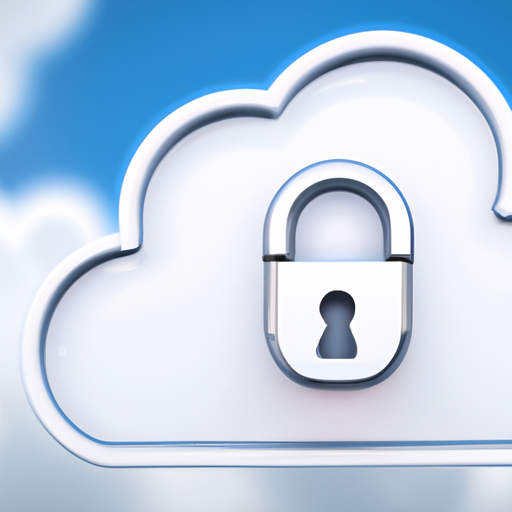-
Table of Contents
“Data Breaches: Protecting Your Privacy and Your Business from Unwanted Consequences.”
Introduction
Data breaches are a major security concern for both individuals and organizations. They occur when sensitive, confidential, or protected data is accessed, used, or disclosed without authorization. Data breaches can have serious consequences for both individuals and organizations, including financial losses, reputational damage, and legal liabilities. They can also lead to identity theft, fraud, and other malicious activities. In this article, we will discuss the impact of data breaches on individuals and organizations, as well as the steps that can be taken to prevent them.
The Cost of Data Breaches: What You Need to Know
Data breaches can be costly for businesses of all sizes. Not only can they lead to financial losses, but they can also damage a company’s reputation and put customer data at risk. In this article, we’ll discuss the potential costs of data breaches and what you need to know to protect your business.
The direct costs of a data breach can be significant. Depending on the size and scope of the breach, businesses may need to pay for forensic investigations, legal fees, and customer notifications. They may also need to pay for credit monitoring services for affected customers. In addition, businesses may face fines and penalties from regulatory bodies.
The indirect costs of a data breach can be even more damaging. Businesses may experience a loss of customer trust, leading to a decrease in sales and revenue. They may also face reputational damage, which can be difficult to recover from.
Fortunately, there are steps businesses can take to protect themselves from data breaches. Investing in cybersecurity measures such as firewalls, antivirus software, and employee training can help reduce the risk of a breach. Additionally, businesses should have a plan in place for responding to a breach if one does occur.
Data breaches can be costly, but with the right precautions, businesses can minimize the risk and protect their customers’ data. By investing in cybersecurity measures and having a plan in place for responding to a breach, businesses can protect themselves from the financial and reputational damage that can result from a data breach.
The Role of Government in Regulating Data Breaches
Data breaches are a serious issue that can have a devastating impact on individuals, businesses, and governments. As such, it is important for governments to take an active role in regulating data breaches.
The first step in regulating data breaches is to create laws that protect individuals and businesses from the misuse of their data. These laws should include provisions that require companies to notify individuals and businesses when their data has been breached, as well as provisions that require companies to take steps to protect their data from unauthorized access.
The second step in regulating data breaches is to create laws that punish those who misuse data. These laws should include provisions that impose fines and other penalties on those who misuse data, as well as provisions that allow individuals and businesses to seek compensation for any losses they suffer as a result of a data breach.
The third step in regulating data breaches is to create laws that require companies to take steps to protect their data. These laws should include provisions that require companies to implement security measures such as encryption, two-factor authentication, and other measures to protect their data from unauthorized access.
Finally, governments should create laws that require companies to report data breaches to the appropriate authorities. These laws should include provisions that require companies to report data breaches to the relevant government agencies, as well as provisions that require companies to provide information about the data breach to affected individuals and businesses.
By taking these steps, governments can help to ensure that data breaches are properly regulated and that individuals and businesses are protected from the misuse of their data.
The Growing Threat of Data Breaches in the Digital Age
As the digital age continues to evolve, so does the threat of data breaches. With more and more of our personal information being stored online, it’s becoming increasingly important to be aware of the potential risks associated with data breaches.
Data breaches occur when an unauthorized individual gains access to sensitive information, such as passwords, credit card numbers, or other personal information. This information can then be used to commit identity theft or other fraudulent activities.
Data breaches can occur in a variety of ways. Hackers can gain access to a company’s computer systems and steal sensitive information. They can also use malware or phishing scams to gain access to personal information. In some cases, data breaches can even occur due to human error, such as when an employee accidentally sends sensitive information to the wrong person.
The consequences of a data breach can be devastating. Not only can it lead to financial losses, but it can also cause irreparable damage to a company’s reputation. It can also lead to identity theft, which can have long-term consequences for victims.
Fortunately, there are steps you can take to protect yourself from data breaches. Make sure to use strong passwords and two-factor authentication whenever possible. Be wary of suspicious emails and never click on links or attachments from unknown sources. Additionally, make sure to keep your software and operating systems up to date to ensure that any security vulnerabilities are patched.
Data breaches are a growing threat in the digital age, but with the right precautions, you can protect yourself and your information.
The Impact of Data Breaches on Businesses and Consumers
Data breaches can have a devastating impact on businesses and consumers alike. In recent years, data breaches have become increasingly common, with hackers gaining access to sensitive information such as credit card numbers, Social Security numbers, and other personal data. The consequences of a data breach can be far-reaching and long-lasting, affecting both businesses and consumers.
For businesses, a data breach can be costly. Not only do businesses have to pay for the cost of the breach itself, but they may also face fines and other penalties from regulatory bodies. In addition, businesses may suffer reputational damage, as customers may be less likely to trust them with their data. This can lead to a loss of customers and revenue.
Consumers are also affected by data breaches. When their personal information is compromised, they may be at risk of identity theft and fraud. This can lead to financial losses, as well as emotional distress. In addition, consumers may have to spend time and money to repair their credit and restore their identity.
Data breaches can have a serious impact on businesses and consumers. It is important for businesses to take steps to protect their customers’ data, such as implementing strong security measures and regularly monitoring for suspicious activity. Consumers should also take steps to protect their data, such as using strong passwords and monitoring their credit reports. By taking these steps, businesses and consumers can help protect themselves from the devastating effects of a data breach.
How to Protect Your Organization from Data Breaches
Data breaches can be devastating for organizations, leading to financial losses, reputational damage, and legal liabilities. Fortunately, there are steps you can take to protect your organization from data breaches.
1. Establish a Security Culture: Make sure everyone in your organization understands the importance of data security and is aware of the risks associated with data breaches. Establish a culture of security by providing regular training and education on data security best practices.
2. Implement Strong Access Controls: Establish strong access controls to ensure that only authorized personnel have access to sensitive data. This includes implementing multi-factor authentication, setting up user access levels, and regularly monitoring user activity.
3. Use Encryption: Encrypting data is one of the most effective ways to protect it from unauthorized access. Encryption ensures that even if data is stolen, it will be unreadable without the encryption key.
4. Monitor Your Network: Regularly monitor your network for suspicious activity and potential threats. This includes monitoring for malicious software, unauthorized access attempts, and other suspicious activity.
5. Regularly Back Up Data: Regularly back up your data to ensure that you can recover it in the event of a data breach. Make sure to store backups in a secure location and encrypt them for added protection.
By following these steps, you can help protect your organization from data breaches and the associated risks.
Conclusion
Data breaches can have a devastating impact on both individuals and organizations. They can lead to financial losses, reputational damage, and even legal action. It is important for organizations to take steps to protect their data and ensure that their systems are secure. Individuals should also take steps to protect their personal information and be aware of the risks associated with data breaches. By taking the necessary precautions, organizations and individuals can help to reduce the risk of data breaches and the associated consequences.




